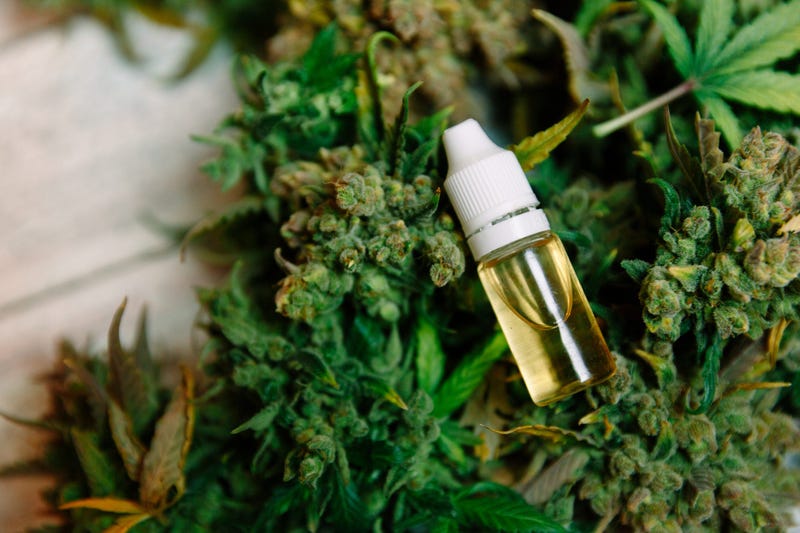
Bills that could help expand medical marijuana access to veterans were pulled from a Congressional committee hearing shortly before the Wednesday meeting and the votes expected on those bills were canceled.
“In light of bipartisan feedback and renewed interest from committee members, the chairman has withdrawn the bills from (Wednesday’s) markup and plans to dedicate time exclusively to this topic in the future to allow more voices to be heard,” committee majority spokeswoman Jenni Geurink told Connecting Vets.
Groups pushing for the passage of the bills were frustrated by the decision to stall the legislation.
"It is extremely unfortunate that the committee has chosen to postpone addressing the need for VA cannabis research," Eric Goepel, founder and CEO of the Veterans Cannabis Coalition, told Connecting Vets on Wednesday. "It's especially troubling in light of last week's press conference on veteran suicide, where politicians made a bipartisan pledge to use every tool available to combat the suicide and overdose crisis decimating our community.
"The delays from the committee and opposition from the VA are indicative of the empty rhetoric that has come to define the national conversation on veteran suicide and overdose. At least 20 more vets will die today -- how many lives could be saved by researching and developing natural cannabis-based medications instead of continuing to shovel toxic and addictive pharmaceuticals at high-risk patients? We have seen first-hand the vast improvements in quality of life when veterans understand how to use cannabis and have legal access. It is imperative that Congress and the VA fulfill their explicit, legal obligations to veterans and finally make good on the unfulfilled promise to provide the best care possible."
Justin Strekal, political director for the National Organization for the Reform of Marijuana Laws (NORML) agreed with Goepel.
“Every day that goes by is another lost opportunity to address the issue and another day with a generation of veterans is being denied the basic freedom to medicate with a state-legal substance that has been proven effective,” Strekal told Connecting Vets.
"Our veterans currently wake up with the reality that there are medical treatment options out there that could help them, but because they are in the VA system, they have no access to them," Iraq and Afghanistan Veterans of America CEO Jeremy Butler said in a statement to Connecting Vets. "There is no reason to delay provision of important medical treatment options to veterans any further. IAVA calls upon Congress to move swiftly to ensure that our veterans have access to the same medical treatment options as their civilian counterparts."
The bills are strongly opposed by Department of Veterans Affairs leadership, who say as long as marijuana is a Schedule I drug, they will look to the Drug Enforcement Agency and Department of Justice on what to allow.
“This committee can make strong proposals for us to move forward with recommendations of filling out forms and such, but in the end, we need to go back to DEA and DOJ for their opinion. I’ve not seen anything to suggest their opinion will change,” Larry Mole, chief consultant for VA population health, said at a previous hearing.
The bills were already debated during a House Veterans Health subpanel hearing last week and include:
The Veterans Cannabis Use for Safe Healing Act would prevent the VA from denying benefits to a veteran participating in a state-approved marijuana program and would allow VA doctors to recommend medical marijuana to patients in states where the substance is legal.
The VA Medicinal Cannabis Research Act directs the VA to complete a clinical trial of the efficacy of marijuana in treating adults with chronic pain and PTS.
A third bill, the Veterans Equal Access Act, would allow VA doctors to advise veterans on participating in state medical marijuana programs and complete forms for those veterans that reflect their recommendations. The Equal Access Act was not on the agenda for consideration on Wednesday and includes provisions similar to the Safe Healing Act.
